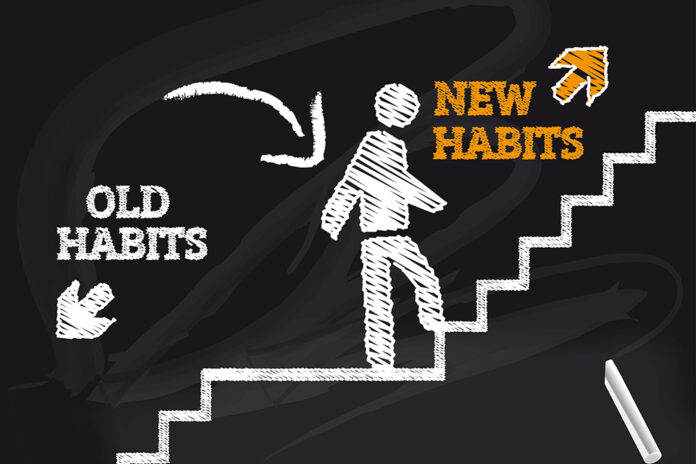

By Joan Koczor
Habits, scientists say, emerge because the brain is constantly looking for ways to save effort. The brain will try to make almost any routine into a habit because habits allow our minds to ramp down; an effort-saving instinct.
Merriam Dictionary defines habit as an acquired mode of behavior that has become nearly or completely involuntary.
Charles Duhigg in his book “The Power of Habit” explains once a habit is established your brain can take a backseat in the decision making. You instinctively do a task without much thought or conscious decision. You will continue to, unless you make the deliberate decision to fight back against the habit.
As we go through life we create habits that are normal to our everyday routine. These habits can be good or bad for our health or not impact our health at all.
Daily Health Lifestyles lists 12 habits we may do every day and should make an effort to avoid as soon as possible. A sampling:
Slouching while walking. Slouching is a habit that, for some, has become a way of life. The way we walk illustrates the mood we are in or how we are feeling. Walking with the back straight and the chest out means we are feeling excited or eager for what is ahead. Slouching may signal depression or not feeling motivated.
Letting others get the best of you. It is all-too common to worry about what others think about you and try their hardest to impress the ones that make an impression on a lot of people.
Procrastination. When you put things off until a later date you begin to subconsciously worry about not getting the task completed on time. Your sleep could be affected. And it could lead to the task becoming more difficult to complete because you have thought about this one task for so long you become anxious and stressed.
Multi-tasking. An increasing number of people multitask and often complete the work of three people at the same time. We are not allowing ourselves and our brains the small breaks necessary throughout the day.
Talking solely through text and social media. This has become a habit that should/must be avoided. There is nothing wrong with using text messaging or social media as means of contact; the problem comes when this is your only method of communication. Talking face to face with people allows us to become more intimate and allows the conversation to be more meaningful
Habits are here to stay, never truly disappearing. But, they can be overcome by learning new routines and practicing them over and over again.
Information from “Power of Habits and Daily Health Lifestyles” by Charles Duhigg.
Joan Koczor is a senior advocate and a member of the Age-Friendly Maricopa Advisory Committee.
This column appears in the March issue of InMaricopa.


![Who’s the Best Mom InMaricopa? Nominate now! Marlene Marshall, Christina Olivares, and Meghan Bremer. [Bryan Mordt]](https://www.inmaricopa.com/wp-content/uploads/2023/05/BCM_8465-218x150.jpg)









![Alleged car thief released without charges Phoenix police stop a stolen vehicle on April 20, 2024. [Facebook]](https://www.inmaricopa.com/wp-content/uploads/2024/04/IMG_5040-218x150.jpg)




![City gave new manager big low-interest home loan City Manager Ben Bitter speaks during a Chamber of Commerce event at Global Water Resources on April 11, 2024. Bitter discussed the current state of economic development in Maricopa, as well as hinting at lowering property tax rates again. [Monica D. Spencer]](https://www.inmaricopa.com/wp-content/uploads/2024/04/spencer-041124-ben-bitter-chamber-property-taxes-web-100x70.jpg)